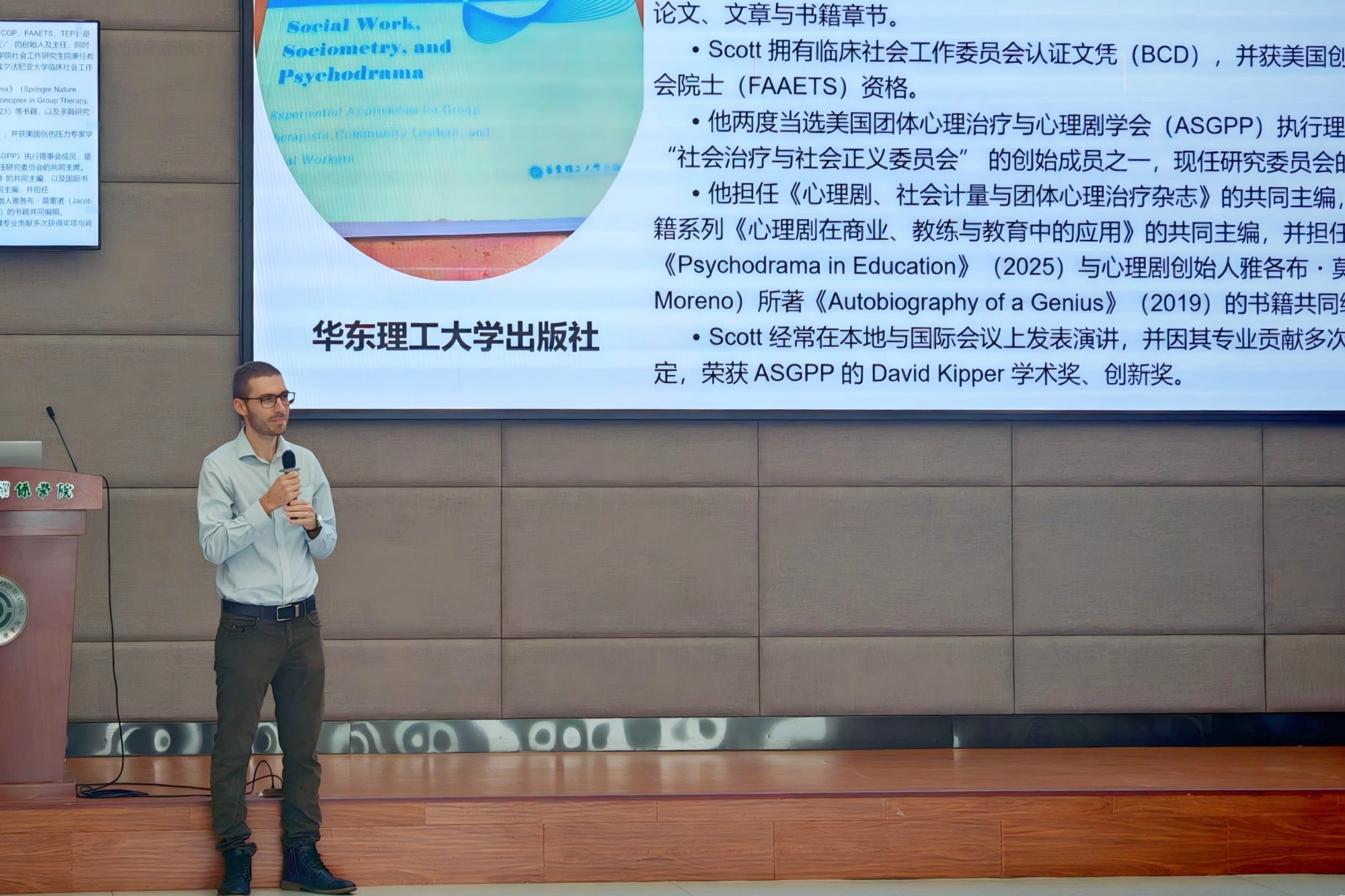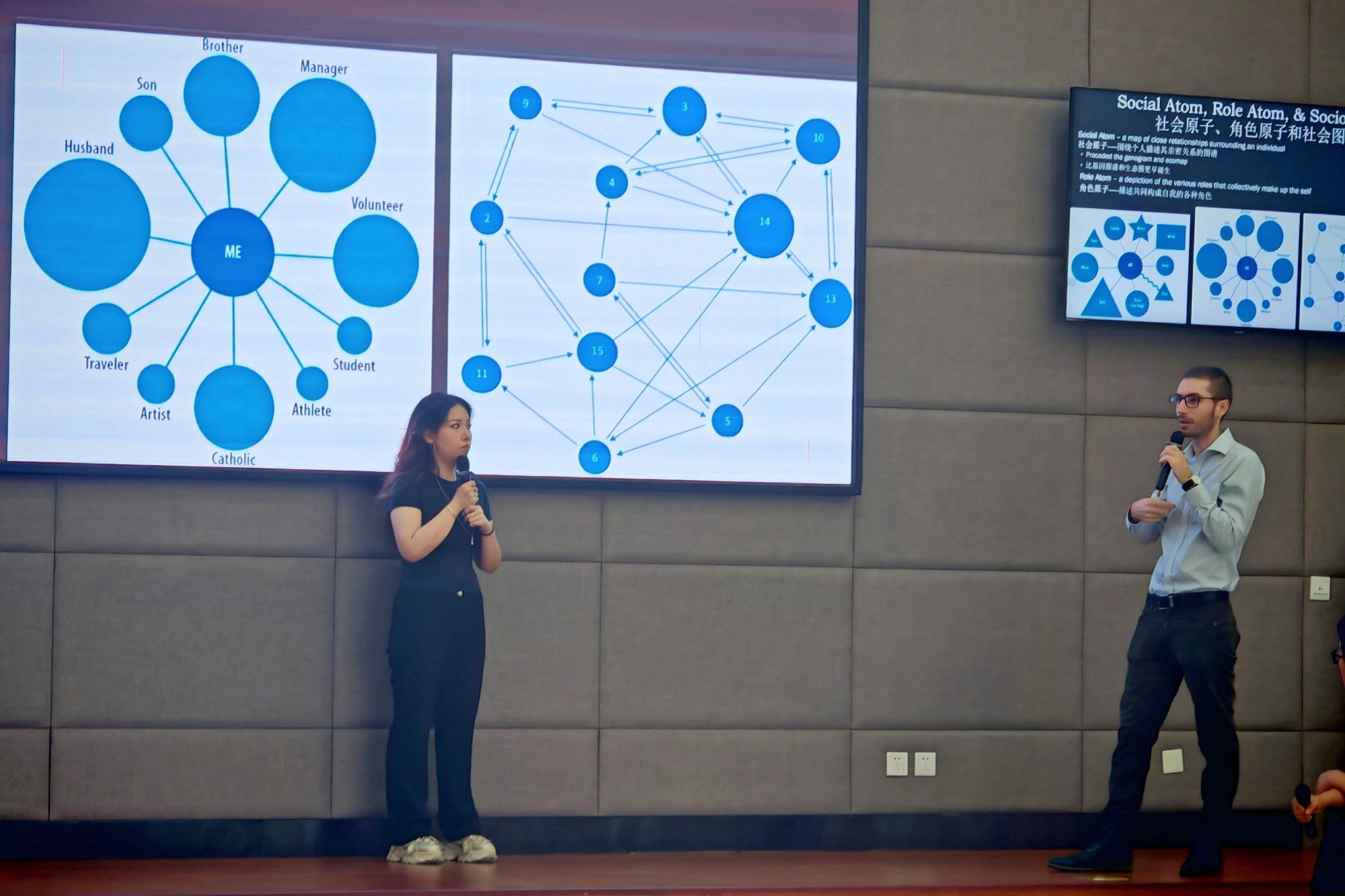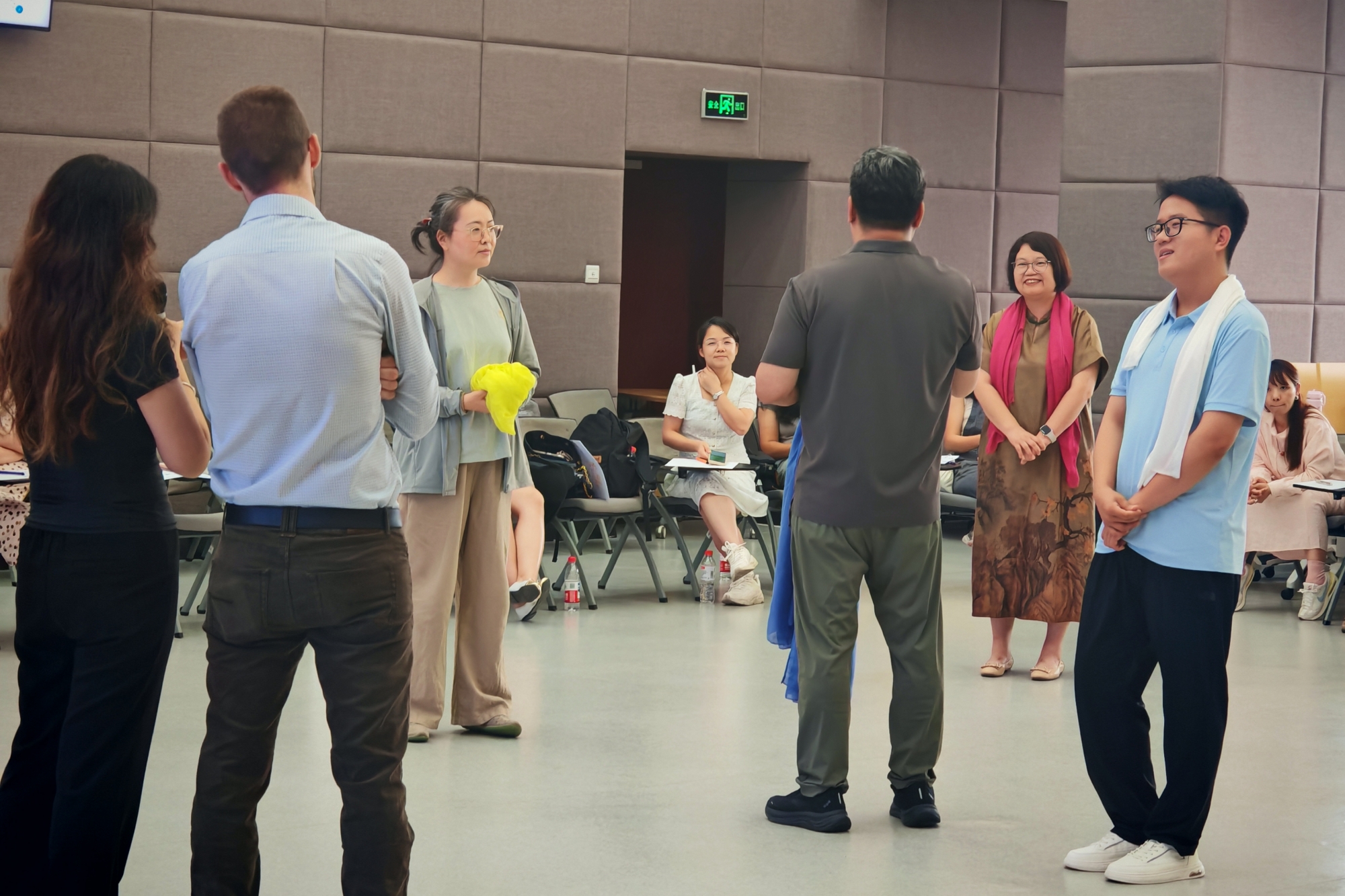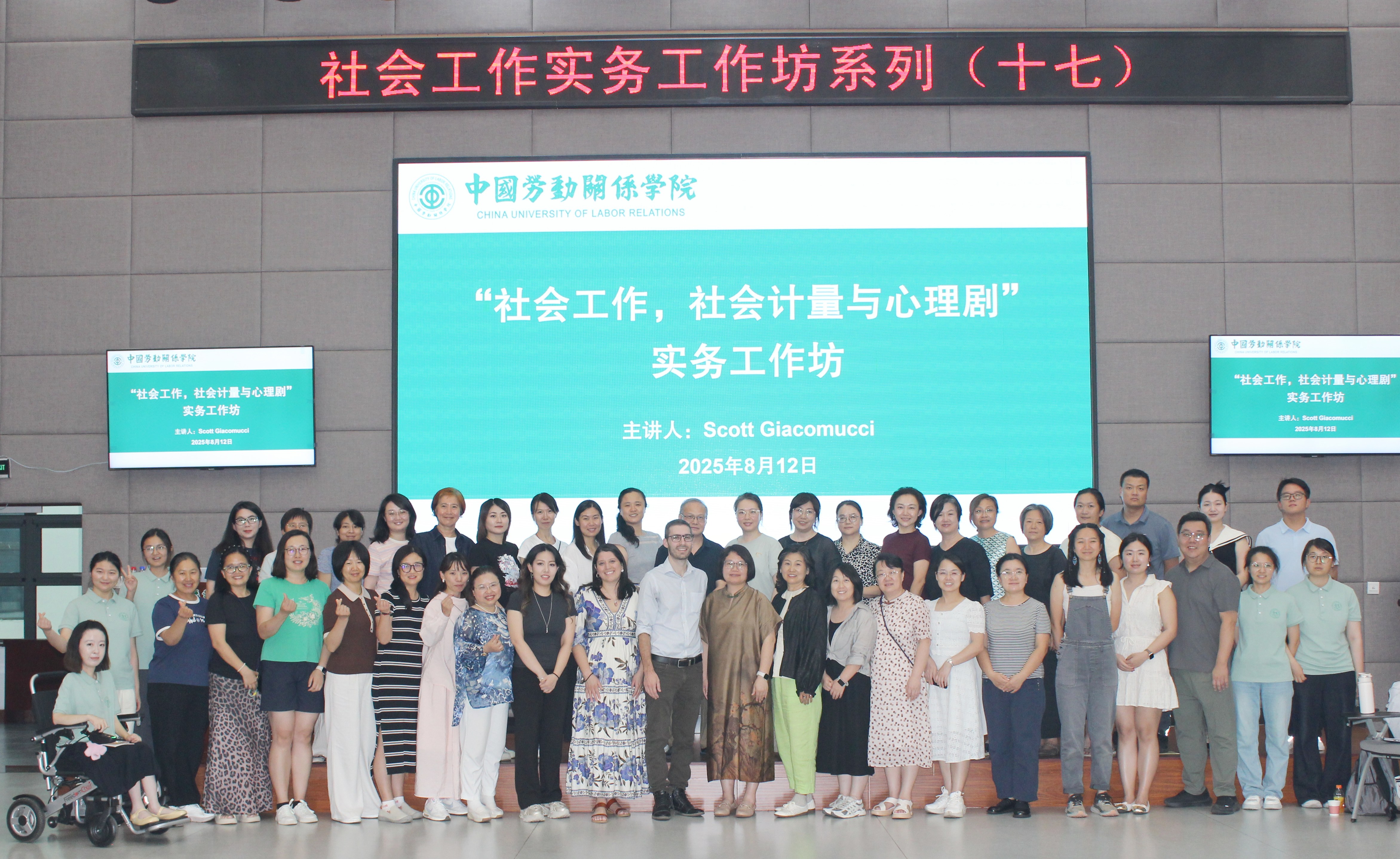From August 12 to 13, the Psychodrama Workshop, co-hosted by the School of Social Work and the Office of International Exchange and Cooperation, was held in Room 909, Zhiyuan Building at China University of Labor Relations (CULR). Scott Giacomucci, Associate Professor at Bryn Mawr College, the United States, and Founder and Director of the Phoenix Center for Experiential Trauma Therapy in Pennsylvania, served as the lead instructor of the workshop.

Professor Giacomucci is a renowned scholar in the fields of international psychodrama and sociometry. He currently serves as a member of the Executive Council of the American Society of Group Psychotherapy and Psychodrama (ASGPP), co-editor of relevant academic journals, and has received multiple honors, including the Emerging Social Work Leader Awardfrom the National Association of Social Workers (NASW). His research and practice cover areas such as clinical social work and trauma intervention, with an emphasis on cross-disciplinary integration of theory and methods.

The theme of the workshop on August 12 was "Social Work, Sociometry, and Psychodrama". Professor Giacomucci reviewed the life and ideas of psychodrama founder J.L. Moreno, introduced the core theories of psychodrama and sociometry, highlighted the role of sociometry in understanding group relationships and improving individuals' positions within social structures, explained the advantages of psychodrama as an action-oriented method, and illustrated its flexibility with case examples. He then guided practical exercises, introducing tools such as the social atom, concretization, and the sculpting method. Participants actively engaged in the exercises and held in-depth discussions on topics including cross-cultural applications.

The theme of the workshop on August 13 was "Trauma-Informed Care and Trauma Therapy Psychodrama". Professor Giacomucci introduced the concept of trauma-informed care; emphasized that trauma is influenced by multiple backgrounds and that interventions should create a safe environment; explained the six principles of trauma-informed care,: safety, trust and transparency, peer support, collaboration and mutual relationships, empowerment with opportunities for expression and choice, and attention to cultural, historical, and gender issues; and demonstrated how to direct psychodrama incorporating this approach. During the practical session, participants enthusiastically engaged in related activities and gained substantial experience.

The workshop delivered knowledge, demonstrated methods, shared ideas, and covered topics including psychodrama, sociometry, and related practices. Its content is closely aligned with the needs of social work in China, particularly in trauma intervention, group dynamics analysis, and relationship repair. Participants not only expanded their theoretical perspectives but also acquired practical skills, contributing new momentum to the professional development of social work, laying a foundation for practitioners to provide trauma-informed care and therapy, and inspiring cross-disciplinary integration and innovation.
(School of Social Work, Office of International Exchange and Cooperation)
